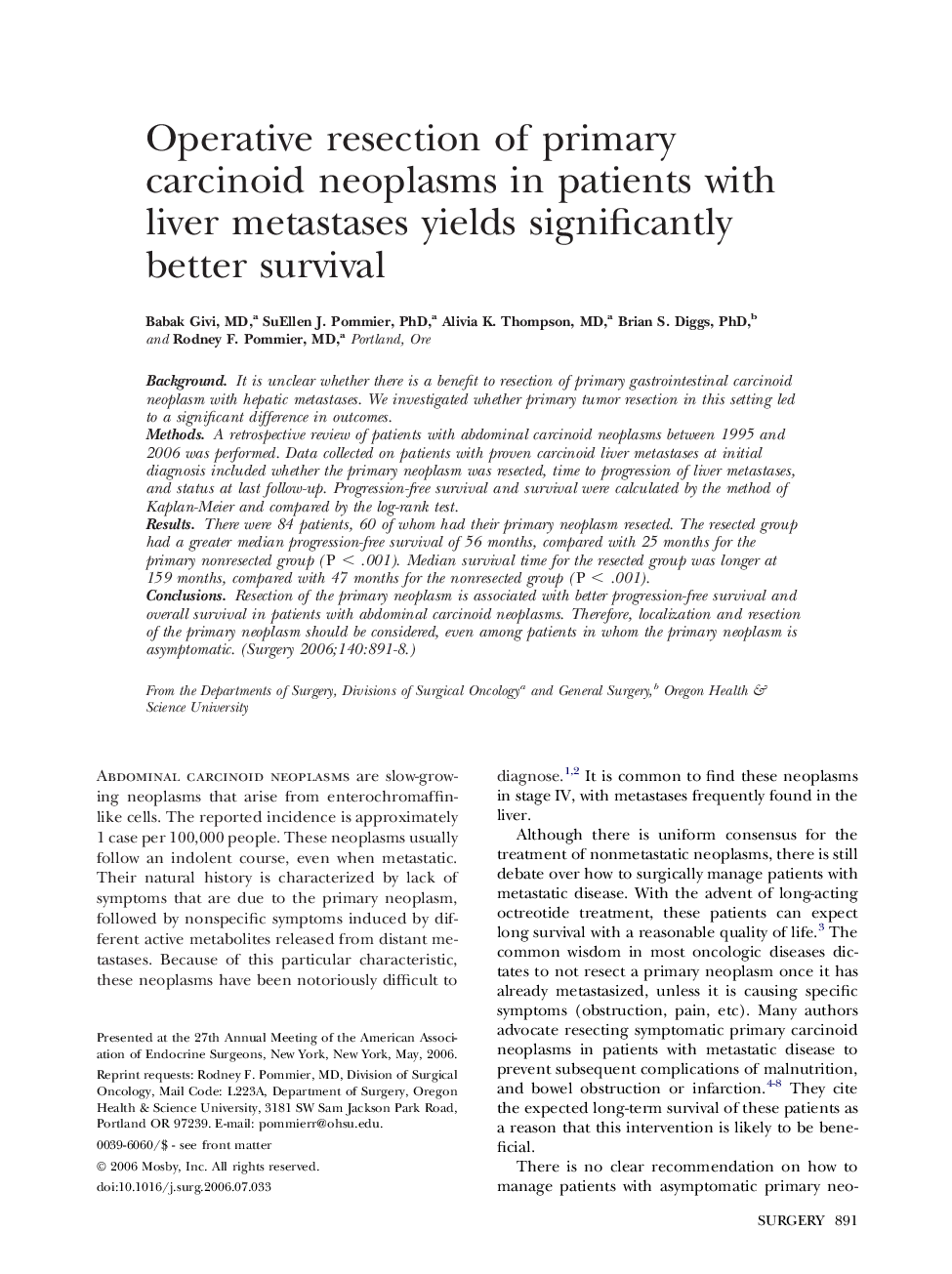| Article ID | Journal | Published Year | Pages | File Type |
|---|---|---|---|---|
| 4310452 | Surgery | 2006 | 8 Pages |
BackgroundIt is unclear whether there is a benefit to resection of primary gastrointestinal carcinoid neoplasm with hepatic metastases. We investigated whether primary tumor resection in this setting led to a significant difference in outcomes.MethodsA retrospective review of patients with abdominal carcinoid neoplasms between 1995 and 2006 was performed. Data collected on patients with proven carcinoid liver metastases at initial diagnosis included whether the primary neoplasm was resected, time to progression of liver metastases, and status at last follow-up. Progression-free survival and survival were calculated by the method of Kaplan-Meier and compared by the log-rank test.ResultsThere were 84 patients, 60 of whom had their primary neoplasm resected. The resected group had a greater median progression-free survival of 56 months, compared with 25 months for the primary nonresected group (P < .001). Median survival time for the resected group was longer at 159 months, compared with 47 months for the nonresected group (P < .001).ConclusionsResection of the primary neoplasm is associated with better progression-free survival and overall survival in patients with abdominal carcinoid neoplasms. Therefore, localization and resection of the primary neoplasm should be considered, even among patients in whom the primary neoplasm is asymptomatic.
